mardi, 28 mai 2019
The War of Nihilisms
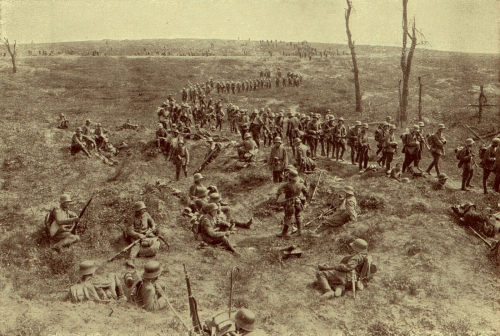
The War of Nihilisms
The first English translation of Ernst Jünger’s journals from the Second World War is a cause for celebration. The journals were like treasures stashed away in an old castle, behind a door that could be unlocked only if one learned to read German. It’s open now, and what’s inside are literary gems on every page.
Jünger’s war journals were written in six parts. The first, Gardens and Streets, covering 1940, and last, A Cottage in the Vineyard, covering 1945 to 1948, are not included in this volume. It deals with the middle four, covering the years 1941 to 1945, published in 1949 under the title Strahlungen. It’s a word difficult to render into English, but most commonly translated as “emanations” or “radiations,” which convey the power of Jünger’s highly visual and allusive prose, which glows with immense erudition and culture.
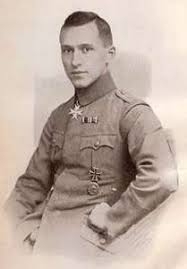 In the preface to his translation of Saint-John Perse’s Anabasis (1949), T.S. Eliot explained that some gifted writers are “able to write poetry in what is called prose.” That is what Jünger did in virtually all of his writings, especially here. Strahlungen is essentially a long prose poem, brimming with symbols, ideas, insights, and searing, unforgettable images. The Argentinian poet Jorge Luis Borges wrote in Gold of the Tigers (1977), “For a true poet, every moment of existence, every act, ought to be poetic since, in essence, it is so.” Jünger understood that. Likewise, Borges wrote in The Cipher (1981) that “the intellect (wakefulness) thinks by means of abstractions; poetry (dream) by means of images, myths, or fables. Intellectual poetry should pleasingly interweave these two processes.”
In the preface to his translation of Saint-John Perse’s Anabasis (1949), T.S. Eliot explained that some gifted writers are “able to write poetry in what is called prose.” That is what Jünger did in virtually all of his writings, especially here. Strahlungen is essentially a long prose poem, brimming with symbols, ideas, insights, and searing, unforgettable images. The Argentinian poet Jorge Luis Borges wrote in Gold of the Tigers (1977), “For a true poet, every moment of existence, every act, ought to be poetic since, in essence, it is so.” Jünger understood that. Likewise, Borges wrote in The Cipher (1981) that “the intellect (wakefulness) thinks by means of abstractions; poetry (dream) by means of images, myths, or fables. Intellectual poetry should pleasingly interweave these two processes.”
Borges is relevant because he and Jünger read and admired each other’s work. There is a wonderful photo of an aged Borges visiting Jünger at his home in Wilflingen, Germany, in Julien Hervier’s The Details of Time: Conversations With Ernst Jünger (1995).
Jünger’s literary gifts were evident from the beginning. His Storm of Steel (1920, In Stahlgewittern) is still considered by many to be the best combat memoir from the Great War. Its successor, Copse 125 (1925), is excellent as well, although not as well-known. It recounts his experience as a stormtrooper officer during the summer of 1918. Between battles, he read Laurence Sterne’s Tristram Shandy, which he carried in his map case.
Jünger was also a war hero. In September 1918, he was awarded the Pour le Mérite, the highest honor of the Prussian military. He became a nationalist after the war “under French influence” through reading the writer Maurice Barrès. Jünger would remain a Francophile through the next war. In the 1920’s he wrote for nationalist journals, and even briefly served as a volunteer officer in the Freikorps. In 1926, he sent a copy of his third combat memoir, Fire and Blood (1925), to Hitler with the inscription, “To the Nationalist Führer, Adolph Hitler.” Yet Jünger never joined the Nazi Party nor any party-controlled organizations, and beginning in the 1930’s he was suspected of political dissidence. Yet Hitler protected him, reportedly saying on more than one occasion, “Nothing happens to Jünger.”
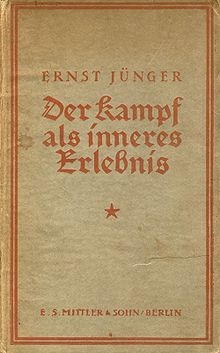 Jünger considered the National Socialists to be a shallow and savage version of the conservative nationalism that he supported in the 1920’s. In the journals, he refers to Hitler under the pseudonym “Kniebolo,” meaning roughly “kneel to the devil,” because he believed the man was under demonic influence. In late 1943 he wrote, “When I compare the legitimate claims of our Fatherland with what has occurred at his hands, I am overcome with infinite sadness.”
Jünger considered the National Socialists to be a shallow and savage version of the conservative nationalism that he supported in the 1920’s. In the journals, he refers to Hitler under the pseudonym “Kniebolo,” meaning roughly “kneel to the devil,” because he believed the man was under demonic influence. In late 1943 he wrote, “When I compare the legitimate claims of our Fatherland with what has occurred at his hands, I am overcome with infinite sadness.”
Jünger took no part in the Stauffenberg plot to assassinate Hitler, but he knew about it, and was actually briefed on it by Lieutenant Colonel von Hofacker, with whom he argued that the Führer should be arrested, not killed. Jünger believed that political assassinations only make things worse. Yet his writings certainly inspired the aristocratic conspirators, whom he considered among “the last chivalric men.” One of them was the commander-in-chief of the German forces in France, General Carl-Heinrich von Stülpnagel, who was not only Jünger’s superior officer but a friend. Another was General Erwin Rommel, who read Jünger’s Peace in manuscript in May 1944 and reportedly said, “This is a text one can work with.”
During the previous year, the Wehr macht had actually printed 20,000 copies of Jünger’s allegorical critique of the Nazi regime, On the Marble Cliffs (Auf den Marmorklippen, 1939). It was avidly read on the Eastern Front. Jünger received a letter from a lieutenant who claimed the whole regimental staff was reading it. “At night . . .we went to our tents, where, in the Marble Cliffs, we read about what we had actually experienced.”
Jünger served as an infantry officer during the German conquest of France in the spring of 1940. The next year he was promoted to captain and assigned to German headquarters in Paris as an intelligence officer. There is surprisingly little in this first Paris journal about his work or about the general military situation, although what is there is packed with meaning.
For instance, on October 11, he recorded that “snow has already fallen in the central area of the eastern front.” Later that month, Rudolf Hess crash-landed in Scotland on his quixotic peace mission to England. Jünger was certain Hitler authorized the mission. In January he had a conversation with a lieutenant returning from Russia who told him that his battalion lost a third of its men to the cold.
Jünger himself visited the Eastern Front in November 1942. The several months he spent there form the second part of the journal, which is full of beautiful descriptive passages of the forests and mountains and fascinating insights into the military situation. He arrived in southeastern Russia just days before the Sixth Army was surrounded at Stalingrad. He recalled that a fellow officer and confidante had predicted in the spring that a Caucasus offensive would end in disaster: “He said it would open an umbrella, meaning that it would lead to the construction of huge fronts with narrow points of access.”
Yet, despite the encirclement, the German army continued to fight in the Caucasus Mountains for another month. Jünger was still there when the general retreat was ordered. The German commander in the Caucasus, General Rudolf Konrad, told Jünger that the German High Command had forgotten the most fundamental teachings of Clausewitz, especially the strategic importance of the concentration of forces: “He said that we could attack the Caucasus, Egypt, Leningrad, and Stalingrad—just not all at once, especially while we were still caught up in secondary objectives.” That, in one sentence, is why the Germans lost the war.
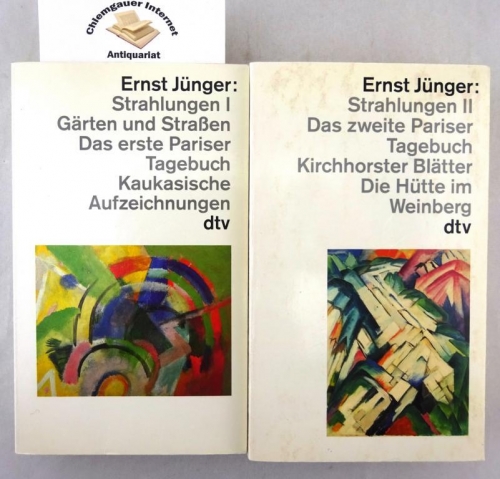
The third part of Strahlungen begins upon Jünger’s return to Paris in February 1943. He was increasingly horrified by reports reaching him of the destruction wrought by the Anglo-American aerial bombardment. He recorded five different ways people die from the bombs: some by the blast itself; some by the collapse of structures; others by being burned alive; still more by suffocation or asphyxiation when the raging fires consumed all the oxygen. What especially appalled him was the dropping of molten phosphorus:
The images are becoming apocalyptic; people are seeing fire raining down from Heaven. This is actually an incendiary compound of rubber and phosphorus that is inextinguishable and inescapable as it engulfs all forms of life. There are stories of mothers who have been seen flinging their children into rivers.
His wife had remained at their home in Kirchhorst, outside the city of Hannover. During one phosphorus attack, “she watched as the phosphorus poured down on the city like molten silver.” A month later, he visited the city and found it reduced “to a heap of rubble. The places where I had lived as a child, as a schoolboy, as a young officer—all had been leveled.” The same was true for all the cities of western Germany. In three years of bombing, the allies destroyed them all.
By then, Jünger was well aware of the horrors of the concentration camps, which he called “charnel houses.” He believed both sides had succumbed to various forms of nihilism. He understood nihilism precisely as Nietszche had done: as the denial of the legitimacy of all historical standards, and of the tyranny of means that had become their own ends.
He wrote of Hitler’s war on “the nomos, which guides him infallibly,” by which Jünger meant Hitler’s disregard for the inherited norms of Western Christian civilization. He believed the allies were guilty of the same crime, as exemplifed by their demand for unconditional surrender and their murderous bombing campaign. “We see the will to destroy, even at the cost of one’s own destruction,” he wrote. “This is a demonic trait.”
He saw the obliteration of ancient structures, such as libraries, cathedrals, monuments, museums, and beautiful old homes, as “one of the stepping stones to Americanism.” America was for him a symbol of the technocratic, materialistic, soulless civilization of the future. He found some support for this view in American writers like Melville, Poe, and Faulkner, whose Pylon (1935) he reread because “it describes the abstract hell of the world of technology with such precision.” He and German jurist Carl Schmitt together read the conclusion of the second volume of Tocqueville’s Democracy in America (1838), which predicts what Schmitt describes elsewhere as “the return of the structures of the absolute state, but without aristocracy,” making “catastrophes of unimaginable dimensions possible.”
Jünger rejoiced that Paris, “the city of cities,” was spared. Paris represented to Jünger the opposite set of values to those being everywhere imposed by force. She stood for culture, refinement, and permanence. She was “like an ark, heavily laden to the gunwales with ancient treasure.” Paris thus symbolized hope to Jünger. So did the German Fronde, in which the French nobility rose up in the 17th century to try to stave off the advent of the absolutist state. Just as the Prussian aristocracy in the Wehrmacht had tried to rid their country of a destructive tyrant.
Jünger believed that “the fate of Germany is hopeless if a new chivalric order does not emerge from its youth.” Chivalry, as Jünger understood it, represented a fusion of the Germanic warrior ethic with Christianity and classical culture. Western Civilization could not and would not survive unless all three flourished together. Jünger, who read the Bible daily during the war, more than once asserted that theology needed to be restored to its rightful place as the queen of the sciences.
Sitting across from him on a train in the spring of 1944 sat a young German paratrooper (a lieutenant) engrossed in a book. Jünger saw a younger version of himself, and the three qualities he values: courage, intellect, and honor. Jünger understood these to be the essence of aristocracy and the glory of European culture. These three were necessary to save her. It remains true today.
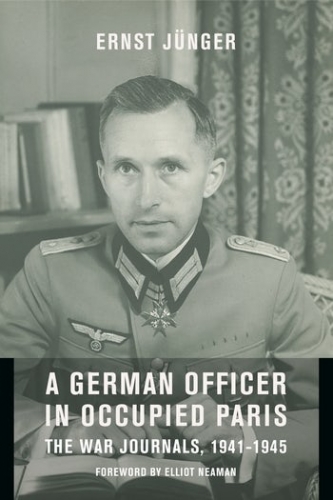
[A German Officer in Occupied Paris: The War Journals, 1941-1945, by Ernst Jünger (New York: Columbia University Press) 496 pp., $40.00]
00:48 Publié dans Histoire, Littérature, Révolution conservatrice | Lien permanent | Commentaires (0) | Tags : ernst jünger, histoire, première guerre mondiale, deuxième guerre mondiale, seconde guerre mondiale, lettres, lettres allemandes, littérature, littérature allemande, guerre, révolution conservatrice |  |
|  del.icio.us |
del.icio.us |  |
|  Digg |
Digg | ![]() Facebook
Facebook



Les commentaires sont fermés.